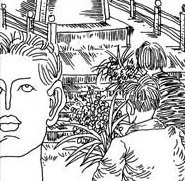Don't turn ritual into a farce
By Raymond Zhou (China Daily)
Updated: 2008-04-05 07:28
Updated: 2008-04-05 07:28

The Americans have a saying: George Washington slept here.
Now, imagine if every place where Washington ever slept were turned into a museum and honored with a grand public memorial ceremony on his birthday, death anniversary, Memorial Day and - what the heck - throw in Halloween, too. All with taxpayers' money.
Something like that is happening in China. And remember, China has a much longer recorded history, which means examples of the above-mentioned phenomenon are sprouting like the proverbial "bamboo shoots after a spring rain".
When I visited Henan province, they told me they had recently held a mammoth ritual to pay homage to Huangdi. Scholars say he was born within that administrative division of today's China. However, he was buried in what is now Shaanxi province - an opportunity for a rival ceremony.
Actually, he may have left as many traces as George Washington. So, the competition to sing his praise has become fierce as local governments fight for a piece of the intangible but meaty asset of being known as a place associated with a very distant - even mythological - celebrity.
Together with Yandi, Huangdi has been heralded as the archetypal ancestor of the Chinese people, a progenitor of China's 5,000-year-old civilization. In other words, Huangdi is someone who deserves such tributes.
But not the minor celebrities. For example, a city in Henan is celebrating the 2,725th anniversary of Liu Xiahui, who is known for keeping his cool while a beautiful girl sat on his lap.
Even the Monkey King, a fairy-tale hero, has become a prize in the regional contest for cultural affluence. A scholar in Fujian has claimed that he found the mischievous monkey's tomb. Surely someone in Shandong has discovered the mountain where the monkey built his base.
What next? Reincarnations of the monkey? Claims that he has been seen pole-vaulting thousands of miles in a single leap?

Public memorials for ancient figures are supposed to inject a dose of cultural identity into our psyche. As such, they should express the innate need of the public. When stripped of public support, a solemn ritual is just a costume play starring local officials and a cast of thousands of extras. As entertainment, its value is quite limited and lacks originality.
When I first heard of such events, I was elated: Finally, people were paying attention to a thing as ethereal as culture. I soon realized that I was wrong. The tactic could be called "using culture to set up the stage and the economy to put on a show". Those newly sculpted statues are only there to attract outside investment. In many cases, they are essentially theme parks with imitation structures, something like Disneyland for the historically minded.
One of the duties of local governments is to spruce up a place's image to attract tourism or investment. But rituals should not be exploited. A ritual overused, over-dramatized or over-commercialized turns into a farce.
The resources for such pomp and pageantry could be better used elsewhere. More funds could be allocated to protect genuine archeological relics. Aspiring writers and artists could get more encouragement to create a vibrant culture of our own time, with emphasis on who we are today rather than how brilliant our ancestors were. And when it comes to reconnecting with our glorious past, it makes more sense to encourage the study of what has been bequeathed to us than to arrange new song and dance extravaganzas.
George Washington would turn in his grave if he knew what a fuss people are making over where he lodged.
E-mail: raymondzhou@chinadaily.com.cn
(China Daily 04/05/2008 page4)
|
|
|
|